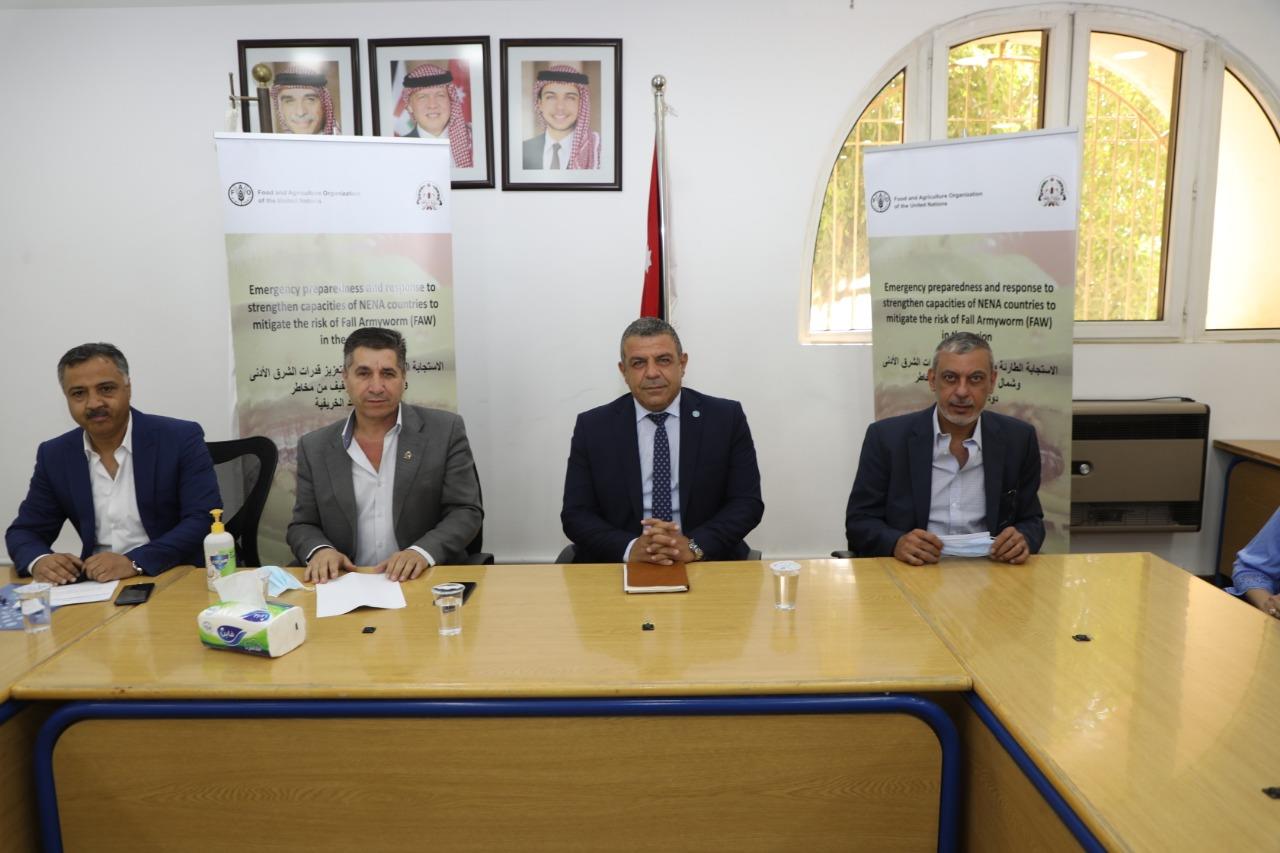FAO conducts training of FFS on Integrated pest Management for Fall Armyworm (FAW)

29 August, 2021, Amman - The Food and Agriculture Organization of the United Nations completed the first day of the Farmer Field School (FFS) training on Integrated Pest Management (IPM) for Fall Armyworm (FAW).
This training falls within the regional activities of “Emergency preparedness and response to strengthen capacities of NENA countries to mitigate the risk of Fall Armyworm (FAW) in the region” project funded by the Food and Agriculture Organization of the United Nations and implemented in cooperation with the Ministry of Agriculture in Jordan.
Fall Armyworm (FAW) is an invasive transboundary insect pest can feed on more than 80 crop plants. Upon its introduction to Africa in 2016, the pest has caused devastating losses in many economic crops, particularly maize.
The objective of the five day training is to build the capacity of twenty-five agricultural engineers from the Ministry of Agriculture on the FFS For the integrated management of fall armyworm pest by developing an integrated curriculum for Fall Armyworm, to be used by the facilitators of the farmer field schools across the countries in the Middle East and Africa, improving knowledge on Integrated pest Management (IPM) for Fall Armyworm (FAW). In addition to improving knowledge of antibiotic information as well as increase their familiarity with FAW monitoring tools and protocols.
FAO Representative in Jordan, Eng. Nabil Assaf, stressed on the importance of farmer field schools and their role in communicating information to farmers. He stated that "Fall Armyworm has become a permanent threat in North Africa and the Middle East, and we will deal with it as we confronted the palm weevil and other pests affecting agricultural crops. Through this project, the organization aims to reduce the impact of Fall Armyworm in Jordan and on the targeted countries in terms of losses in crops, and farmers’ income to achieve food security.”
After the spread of FAW in Africa in 2016, the pest was first reported in the region in Sudan and Yemen in 2018. Currently, there are 8 countries that have officially reported the presence of the pest, including Egypt, Oman, UAE, Mauritania, Jordan and Syria. The high migratory potential, reproductive capacity and ability to cause significant damage to many staple crops like maize, sorghum, rice, wheat, put FAW as major risk to food security and crop production in the region. Scientists and experts are warning that FAW spread is inevitable event, and that the pest will continue to expand its geographic presence to all countries in the region.
